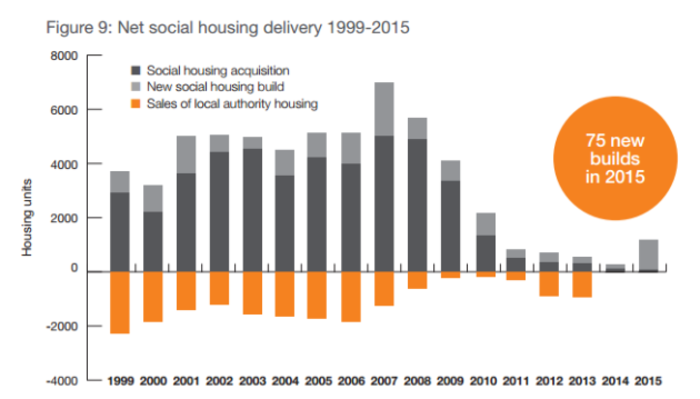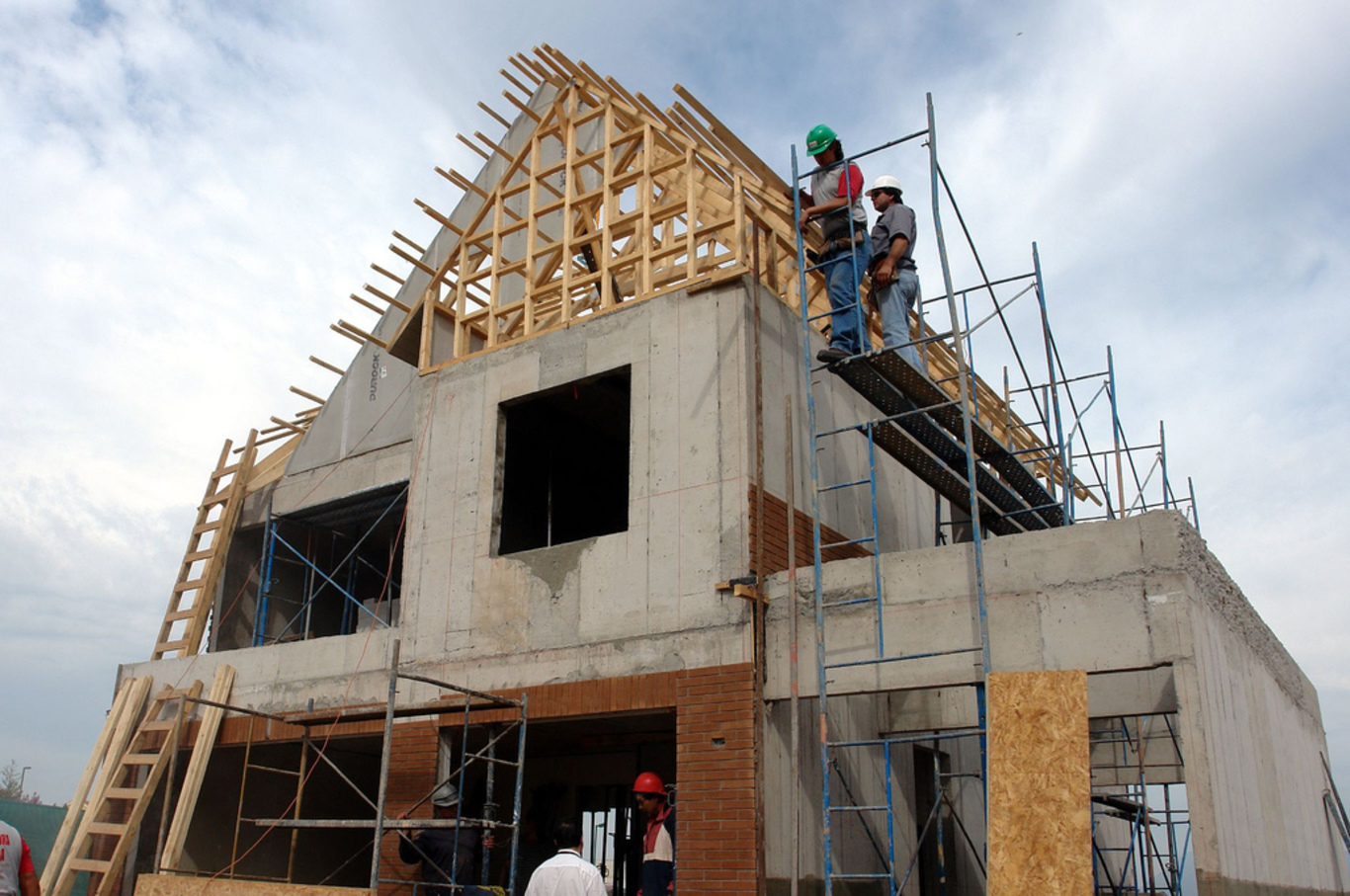Ireland should break EU rules if needed to spend €1 billion on social housing
Business group Ibec says the lack of new homes has reached a critical stage.
IRELAND SHOULD BE given wriggle room from tight EU fiscal rules and be allowed to spend an extra €1 billion building social housing.
That is according to Ireland’s biggest business group, Ibec, which said that if the government fails to build more houses the country is at risk of “competitiveness pressures and urban sprawl”.
In its pre-budget submission, which was launched today, the organisation said that the state needs to spend more on social housing to address the issue.
Speaking to Fora, the group’s economist, Gerard Brady, suggested that Ireland should just spend more money on housing even if it were to go against EU rules.
Under the stability and growth pact, an agreement among the EU member states, all countries in the bloc are set binding budgetary goals.
In Ireland’s case that includes for the government, like every EU member state, to have a debt below 60% of GDP and a yearly deficit below 3% of GDP.
As previously analysed by our sister site TheJournal.ie, this likely limits the government’s potential spend on social housing unless the state discovers some new source of funding.
Shortage
Just 11,000 houses are expected to be built this year, less than half of the predicted demand, and the shortage has started to have a major effect on businesses.
In its submission, Ibec said that only 75 housing units were built by local authorities during 2015, a fraction of what was completed during the boom.

Rents have been pushed up in city centre areas, such as Cork and Dublin. The issue has become so acute that computer giant Intel recently warned that its expansion in the Rebel county could be hampered if it could not find somewhere for its employees to live.
Independent TD Mick Wallace recently asked if the government would look for some relaxation of the rules to address issues in housing.
In response, Finance Minister Michael Noonan said: “I do not intend to seek a break in the fiscal rules, which are designed to ensure stable public finances that underpin sustainable economic growth.
EU rules
Brady said that the state should spend more money on housing even if it does not get the green light from Europe first.
“Housing is a major employment problem, all the way up the wage scale there is huge pressure because of rental prices,” he said.
“It costs about €200,000 to build a social housing unit (so) we could probably deliver about 5,000 for €1 billion – it would take a lot of pressure off the market.”
He added: “If needs be, I think that the government should break the rules and ask for forgiveness later if the negotiations are not a success.”
Under the EU rules, member states could be fined by as much as 0.2% of GDP if they disobey the rules. Last week the EU looked to begin the process of imposing sanctions against Spain and Portugal for breaching budget deficit limits.
However, when asked about the potential for fines Brady said: “It won’t happen. I think that the state would have a good case that it would spend less and be more effective in the long run.”
“The reality is that a cohort of the population won’t be able to afford to live in private housing and the spend would save money over the long run on rent allowance and people staying in hostels.”
The Ibec submission also called for a number of other measures, including:
- Increasing the marginal rate of tax that workers pay.
- Invest in transport, education and broadband infrastructure.
- Increase capital gains tax (CGT) relief for entrepreneurs, enhance investment schemes, and improve the treatment of share options.






